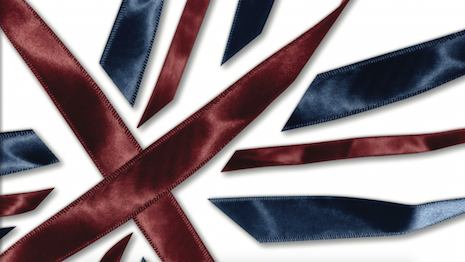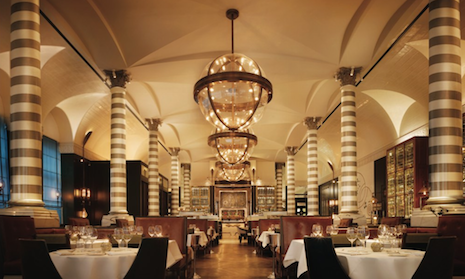 More tourists visit the U.K. from the U.S. than from any other country. Image credit: Walpole
More tourists visit the U.K. from the U.S. than from any other country. Image credit: Walpole
NEW YORK – The United States is the largest consumer of British luxury outside of the United Kingdom itself, which gives Made in the U.K. brands reason to play off its appeal among audiences across the pond.
British luxury trade group Walpole, in association with the British Consulate in New York, hosted Oct. 26 a morning meet-and-greet session with press and select U.K. luxury brand executives on what makes British luxury appealing to U.S. consumers and how marketers can tailor themselves to better fit what those in the U.S. want and need. The group has produced an insightful report titled “Britishness and Brand Identity” that identifies some of the key pillars of British luxury and offers some data on British luxury performance in the U.S.
"Our priority is to connect British brands with U.S. customers," said Ross Allen, director of the Department for International Trade in North America and British Deputy Consul General in New York. "British brands are embracing their heritage while evolving with consumer demands for affordable luxury.
"Our partnership with Walpole is a fine example of how we promote the best that Britain has to offer, as the home of craftsmanship, imagination and innovation."
The breakfast part of a series of events this week culminating in a showcase Oct. 27 of select British luxury brands at the Spring Studios in downtown Manhattan where fashion and luxury-oriented press were invited to meet with key executives from the exhibiting companies. Walpole and the British Consulate collaborated on this effort.
Across the pond
U.S. consumers love Britain. This is apparent from much of the research that Walpole has done pointing to U.S. consumers as the primary buyer of British luxury and the most-frequent travelers to the U.K., in general.
British luxury brands reciprocate that love. Walpole found that 75 percent of the U.K. luxury sector sees the U.S. as a priority growth area over the next few years.
This can be attributed to the U.S.' standing as the largest global consumer of luxury with a luxury market valued at $85 billion. By 2021, the U.S. luxury market will grow by another $18.5 billion.
British luxury is based on a heritage unique to the U.K. Image credit: Walpole
U.S. luxury consumers also represent a huge portion of the U.K.’s tourism industry, with more visitors to Great Britain from the U.S. than any other nation, with 3.5 million in 2016 alone. In total, U.S. visitors to the U.K. spent $3.4 billion last year.
The majority of these U.S. tourists are coming to the U.K. primarily for leisure, giving luxury brands an extra boost from these visitors.
One of the key things U.K. luxury brings to the U.S. is a uniquely British sensibility and the upstanding heritage of brands that have been around for hundreds of years.
Some of brands represented by Walpole extolled the virtues of “Britishness,” the intangible aura that many British brands bring to every aspect of their goods and services for which U.S. consumers have a deep hunger.
Invoking heritage
This year, Walpole produced the 15th edition of its annual yearbook as it celebrates 25 years since its founding.
Walpole’s mission is to promote, protect and develop the qualities of U.K.-based luxury houses by lending its support to tradition, heritage and craftsmanship. The U.K.s luxury businesses, from apparel and jewelry to hospitality and automotive, contribute more than £32 billion, or $42 billion at current exchange rates, to the country’s economy as well as being a lucrative source of employment (see story).
The group has issued reports on some of the most pressing issues facing the U.K. luxury industry. After the country voted to leave the European Union, Walpole issued research and policy recommendations urging Parliament to rein in some of the more detrimental effects that Brexit would have on the luxury industry.
For British brands new to the US, the jump can be daunting. Image credit: Walpole
Between 30 percent to 40 percent of workers in Britain’s luxury industry come from other parts of the European Union, and this statistic is even higher in hospitality companies. While citizens can move freely between E.U. member states, the U.K. is expected to take back control of immigration.
In addition to protecting British residency for current employees, the report also asks for the continued free movement of labor, something on which 83 percent of members agree (see story).
As the desire for a uniquely British take on luxury in the U.S. grows, the brands that offer the most authentic British luxury experience, based on fine craftsmanship and the long legacy of British heritage, will be the ones who succeed.
"This trade trip represents an opportunity to support the international expansion of our brands and building critically important trade links in a key export market," said Helen Brocklebank, CEO of Walpole.
"The U.S. buys more luxury goods than any other nation and the objective of the trip is to encourage America to make more of those goods British," she said.


